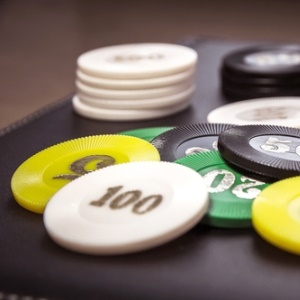
Higher levels of the brain chemical dopamine may increase risk-taking behaviors in healthy people, much like dopamine-boosting drugs have been shown to do in people with Parkinson's disease, a small new study finds.
Compulsive gambling
British researchers discovered that raising dopamine levels in healthy adults led to them taking greater risks when gambling.
Dopamine is a neurotransmitter associated with reward-based learning. Previous research has linked drugs that increase dopamine, such as L-DOPA, with compulsive gambling in Parkinson's disease patients.
Read: Alcoholism in men due to dopamine
The new study included 30 people. They were asked to choose between safe and risky gambling options that resulted in monetary gains and losses. They did this after receiving L-DOPA and again after receiving an inactive placebo.
The participants took more risks to get bigger rewards after receiving L-DOPA, but not the placebo. However, L-DOPA did not affect how often the study volunteers took risks if there was a potential loss, the investigators found.
After receiving L-DOPA, the participants took more risks regardless of how much larger the potential reward was than the safer option, according to the study in the July 8 issue of the Journal of Neuroscience.
Rewards more appealing
Participants were happier to win a small reward while on L-DOPA than on the placebo. They were happier to win a large reward than a small reward while on the placebo, but were equally happy about small rewards and large rewards while on L-DOPA, the findings showed.
L-DOPA made potential rewards more appealing but did not affect the participants' perception of possible losses, according to study leader Robb Rutledge, of University College London in the United Kingdom, and his colleagues.
The study authors also suggested that while on L-DOPA, the participants might have had similar amounts of dopamine release for all gambling rewards, which may explain why they were equally happy after small and large wins.
Read: Gambling addiction
These findings offer new insight into how dopamine levels affect decision-making and emotion, according to Nathaniel Daw, a neuroscientist at New York University in New York City, who was not involved in the study.
The study "may help to explain some kinds of gambling and impulse control problems, and also aspects of mood disorders", he said in a Society for Neuroscience news release.
Read more:
Sex, gambling, Parkinson's link
Creativity, schizophrenia share similarities
Image: Gambling discs from Shutterstock




 Publications
Publications
 Partners
Partners










